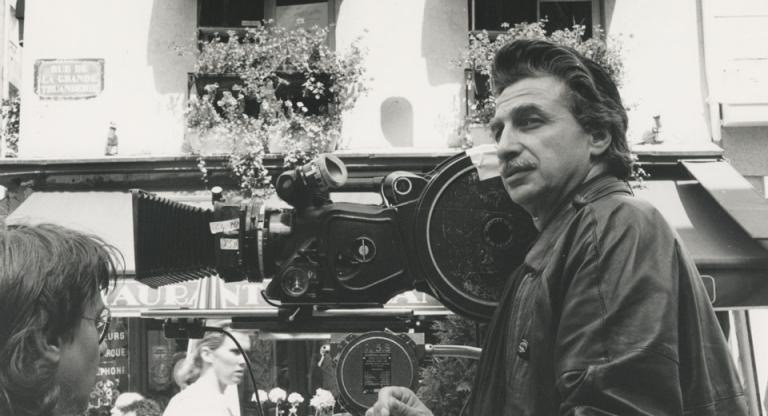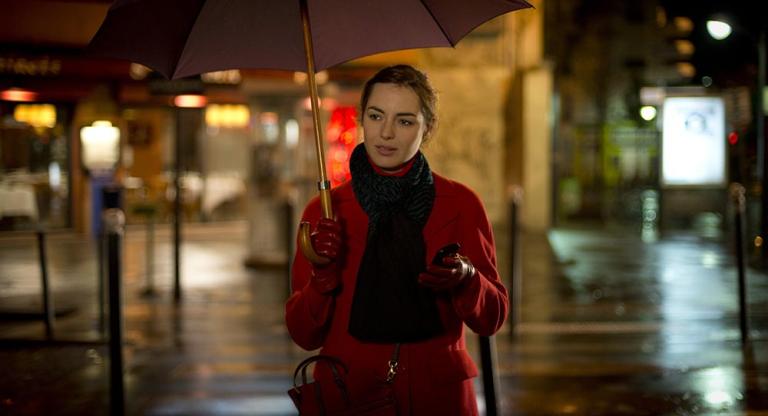Paul Vecchiali’s uniquely eccentric anti-giallo reshapes a serial-killer movie into a considered portrait of collective loneliness. In the French suburbs, baby-faced Emile (Jacques Perrin) sells produce at the farmer’s market by day and strangles depressed women with a crocheted scarf by night. His murderous activities are tracked by a thief who pickpockets the victims, a detective posing as a journalist (Julien Guiomar), and a heartbroken woman (Eva Simonet), whose lives become haphazardly entwined.
As a genre picture, The Strangler (1970) affords only feeble thrills, and in lieu of depicting pursuit of justice and truth the film illustrates the plaintive mysteries of compulsion. Unmasked by the detective relatively early on, Emile is barely methodical and his M.O. apparent from the opening scenes. Playing the murderer—neither pervert nor megalomaniac, as the detective surmises—Perrin flashes a rueful smirk that evokes a sense of jilted longing more than menace, carrying out his work as a series of mercy killings mostly bereft of sexual overtones. Suspense isn’t eradicated from the movie so much as it is sublimated into troubled melancholy—O night conceal my pain caused by being nothing and being alive, read the film's intertitles—and our attention is redirected to the bizarre quadrangle developing between Emile and his devoted observers, each nurturing a subconscious, and for some possibly queer, obsession. Later in the film queerness and violence intermingle.
A mostly unheralded director, Vecchiali pioneered Diagonale, the production company that nurtured numerous LGBTQ+ and female filmmakers, and was the subject of a mini-retrospective at Metrograph after passing away earlier this year. Writing on the subject in these pages, the filmmaker Axelle Ropert said, “In Diagonale films it feels good to talk, sing, love, suffer, have bizarre affairs, strange relationships, secrets, and form communities with weird rules.” This loose framework applies to The Strangler, too, with Vecchiali’s singular approach, melding genre trappings with his signature melodrama, seedy night visions with moments of human warmth. (A group of sex workers rushing to the rescue of a colleague and the cafe matron who supplies them with ham and tea stand out in particular.) Even as Vecchiali muddies the film’s mood, there is a clarity to its fatalism. This fantasy world, like the images of Emile’s victims swaddled in his woolen handicrafts, is both dazzling and grotesque.
NYC: The Strangler runs November 15–21, at Anthology Film Archives, the U.S. theatrical premiere of a new digital restoration.
SF Bay: The Strangler screens November 17 and 20 at Alamo Drafthouse New Mission in a new digital restoration.






